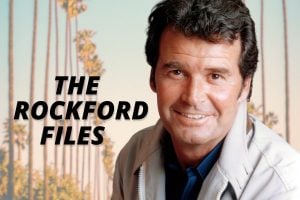Things didn’t go so well right off the bat, however, as the construction crew discovered a layer of granite under the topsoil immediately upon breaking ground for the new track.
It took $70,000 worth of dynamite to clear the area for the first turn alone, eventually turning the original $750,000 construction budget into $2 million.
The final nail in the coffin for the Memorial Day weekend debut was a late spring snowstorm, which resulted in a six-week postponement of the inaugural race to June 19, 1960.
Despite the inauspicious start, the World 600 — now called the Coca-Cola 600 — went on to become one of the jewels in NASCAR’s crown. While the event was intended to rival the Indianapolis 500, the two races weren’t held on the same day until 1974 — when the 500’s traditional Memorial Day date was moved to be the Sunday immediately preceding the holiday itself.
Before that, it was not uncommon for drivers to compete in both events, a feat which was made possible again starting in 1992 when the 600 began running the race at night — giving a participant in the Indy 500 enough time to fly to Charlotte to run the 600, in an attempt to race 1100 miles in one day. – AJW

Johnson wins ‘World 600’ race inaugural
By Bob Hoffman, Enterprise Sports Writer
Chevrolet and Plymouth showed its staying ability yesterday while Joe Lee Johnson proved a little good luck goes a long way as the long-awaited World 600 was run here.
Johnson got a big break when leader Jack Smith was forced to the sidelines with a hole in his gas tank with only 50 laps to go. At the time, Smith was running five laps ahead of his nearest competitor. Johnson grabbed the lead and never gave it up.
A record North Carolina sports crowd estimated at 78,000 by Bruton Smith, general manager of the Charlotte Motor Speedway, saw Johnson average 107.752 miles per hour for his 400 spins around the newly completed 1 1/2 mile asphalt track.
Neither Johnson nor Beauchamp, each driving a 1960 Chevrolet, figured among the top favorites in pre-race speculation.
Johnson took down $25,650 of the $107,775 purse for his first place finish. In addition, he pocketed $480 for leading 48 laps at $10 a lap. It was his first major distance race victory.
Second money was worth $9,100 to Beauchamp.
Finishing in the next three places was the Lee Petty “stable” of 1960 Plymouths, all owned by 46-year-old Lee Petty of Randleman, NC, three-time Grand National champion in the ranks of the National Assn for Stock Car Racing.
Bobby Johns of Miami, Fla, driving a Petty car, took third money of $6,200. Richard Petty, Lee’s 22-year-old son, was fourth to pick up $3,675 and papa Lee followed in fifth place, worth $2,900.
Rounding out the top 10 were:
Gerald Duke, College Park, Ga, Thunderbird, $2,200; Buck Baker, Spartanburg, Chevrolet, $1,650; Rex White, Spartanburg, Chevrolet, $1,350; Banjo Matthews, Asheville, Ford, $1,100; Tiny Lund, Moncks Corner, SC, $900.
 Glenn (Fireball) Roberts of Daytona Beach, Fla, whose better than 133 mph average for six miles in trials won the pole position, led for 114 laps, including the first 65, but dropped out at about the halfway mark when his car’s front right end collapsed under the strain of the struggle in 90-degree temperature. He placed 40th in the field of 60. Twenty-four cars were still rolling at the finish.
Glenn (Fireball) Roberts of Daytona Beach, Fla, whose better than 133 mph average for six miles in trials won the pole position, led for 114 laps, including the first 65, but dropped out at about the halfway mark when his car’s front right end collapsed under the strain of the struggle in 90-degree temperature. He placed 40th in the field of 60. Twenty-four cars were still rolling at the finish.
Johnson, last year’s national convertible division national champion, made few appearances in Grand National events, finishing 70th on the points list.
He’s a Spartanburg native. Four other Spartanburg racers finished in the top 14.
Johnson said after the race he experienced no trouble and thought the new track “was not nearly as rough as I thought it might be.” He made five pit stops and tire changes.
After about 100 miles of the race large scars were visible on the turns, but the drivers avoided the pitfalls with great skill. Five times the caution flag was displayed, four times in the first 50 laps, cutting down the speed considerably.
There were no injuries and only one bad crackup. It came after seven laps when John Wolford of Cleveland, Ohio, spun out rounding the first turn and his car caught fire. It was rammed by the cars of Cotton Owens of Spartanburg and Johnny Allen of Atlanta. All escaped unhurt.
Joe Lee picking up a little weight around middle; it’s his money belt
Joe Lee Johnson, a long, lean Chattanooga mechanic, has picked up a little weight around his middle.
In this case, Johnson surely doesn’t want to diet, because the extra poundage he’s toting around is a money belt filled with nice crisp Charlotte Speedway dollars after grabbing a surprise victory in the first annual World 600 here yesterday.
Johnson, who had never won a major race before, grabbed the lead in the longest stock car race ever run on the 352nd lap and finished a full four laps ahead of Johnny Beauchamp, his nearest competitor.
There were many spills and thrills for the crowd, estimated in some quarters as high as 78,000.
The track, which is still coming up in chunks in places, surprised everyone by not breaking up more than it did.
In fact, Johnson admitted, “It wasn’t nearly as bad as I thought it was going to be. The holes aren’t too bad, but they make it a little tricky.”
Paul McDuffie, considered the best Chevy mechanic in the business, won a great deal of praise for the manner in which his car ran.
Johnson’s crew admitted that they never raised the hood on the car from the time it started until it took the checkered flag at the end of 600 grueling miles.
An old racing bugaboo, tires, didn’t bother the winner in the least. The 1960 Chevy used only six tires, changing the right side rubber three times. Never did they touch the left tires, and the crew said there was still enough tread to run for a long time.
Jack Smith, one of the fast Pontiac pilots, ran into a streak of bad luck to force himself to the pits after it looked as though he had the race won.
With 51 laps left in the race, and enjoying a five-lap lead, Smith’s car caught a rock in the gas tank. His crew stuffed the crevice, said to be as big as your fist, with rags, but it wouldn’t hold the gasoline. Finally Smith was waved off the track by NASCAR officials, and he was out of the contest when it became evident that the damage could not be repaired.
This was the one break Johnson needed.
“When I got on the board (in the first four positions) I knew I could win it,” Joe Lee said. “At that time, I was chasing Smith. I figured he was the man out there to beat.
“I’ve been tireder after a race at Martinsville, and it was just 250 miles. The heat was tough, it felt like 150 degrees out there to me. We set one pace and just stayed with it — the victory belongs to the car. I’ll be driving the same car in Daytona Beach next month, and I hope it’ll run just as well down there.”
Shy Paul McDuffie had a few words about his vehicle.
“We set the gear ratio up for a rough track, and the car did not look good at all until the track started tearing up. Even at that, we never did get the speed out of it we could have with a higher gear ratio.”
Ironically, the car was the same one that Bob Welborn has been driving. Welborn piloted the Chevy for McDuffie at Daytona and Darlington (the first day of the Rebel 300), but had switched to a Courtesy Motor Co Ford for this big race. Welborn finished 16th, but experienced all grades of trouble with his car.
McDuffie’s auto was one of the cars that had been “armor plated” for the event. The car had special protective gear all the way underneath it, and had screen on both sides of the motor.
For McDuffie, it was his first major victory since the 1959 Rebel 300, a race which Fireball Roberts captured in a 1959 Chevy.
Johnson’s biggest victory before yesterday came at Nashville in a 150-mile event last year. Joe Lee won the convertible championship last year, barely edging out Larry Frank.
The victory was worth $26,130 for the 30-year-old Tennessee grease monkey.



















